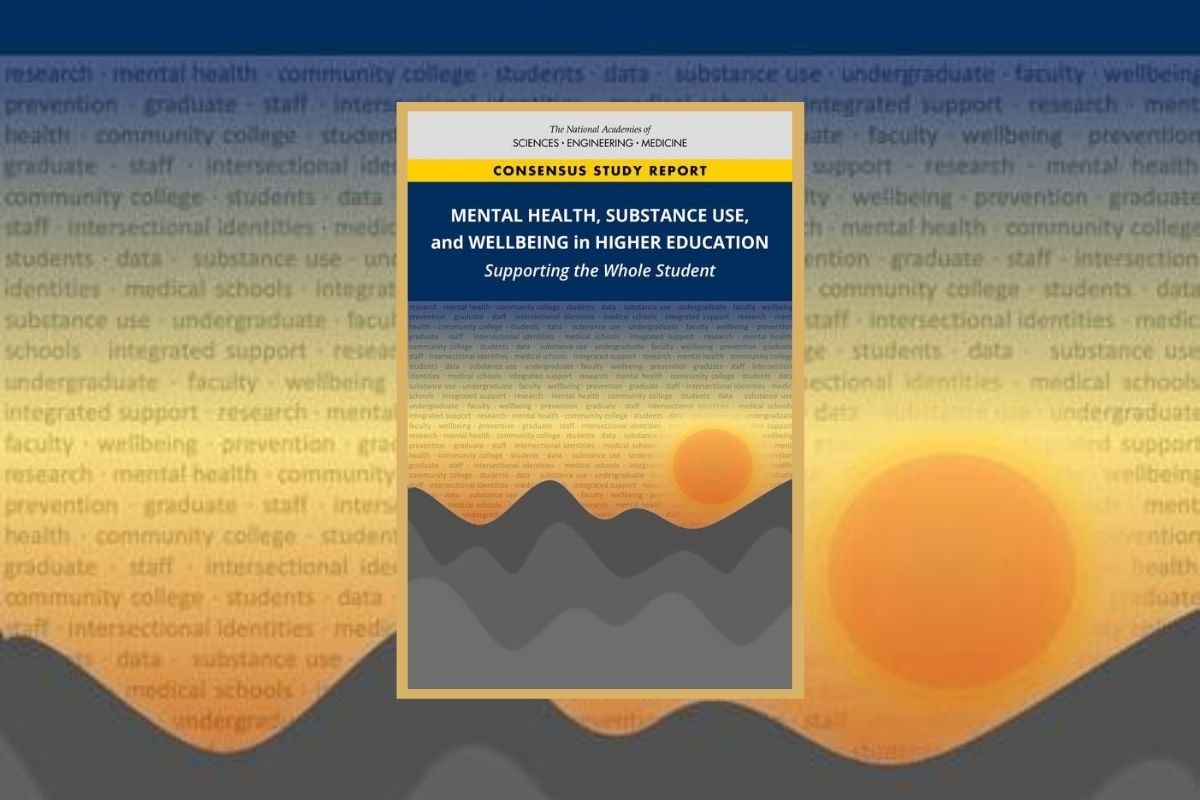
NASEM Issues Comprehensive Report on Student Well-Being in Higher Education with Input from Pullias Center Researcher
The National Academies of Sciences, Engineering, and Medicine (NASEM) has released a consensus report compiled by a committee of renowned experts that included Julie Posselt from the Pullias Center.
Mental Health, Substance Abuse, and Wellbeing in Higher Education: Supporting the Whole Student includes the most current research, and reviews how institutions of higher education– from community colleges to doctoral programs– should support the mental health and wellbeing of undergraduate and graduate students in all fields of study. NASEM assembled a 15-person committee for this project whose expertise included psychiatry, drug and alcohol abuse, social sciences, neuropharmacology, trauma, DEI, mental health, and of course, learning and education.
Julie Posselt, an associate professor of higher education at USC Rossier School of Education and a researcher at the Pullias Center for Higher Education, was selected to join the committee. An expert on graduate education and STEM fields, Dr. Posselt brought expertise on institutional and organizational factors affecting racial and gender disparities in mental health, as well as threats and supports for wellbeing in graduate education.
NASEM Consensus Study Reports document the evidence-based consensus of the study’s authoring committee of experts. Reports include findings, conclusions, and recommendations based on information gathered by the committee and the committee’s deliberations. Each report is subjected to a rigorous and independent peer-review process and represents the position of the National Academies on the topic.
This latest comprehensive report runs 200 pages and exhaustively examines student wellbeing from all angles, with recommendations for tackling challenges at every turn. The recommendations range from efforts to address stigma against mental illness (page 66) to dealing with the shortage of mental health and substance use professionals (page 127). The level of detail includes dives into psupport for specific student populations such as BIPOC, students with disabilities, first-generation students, student-athletes, graduate students, students without documentation, and more.
“This document and the work the committee did to bring it to fruition are the result of dynamic discussions about what matters in supporting students, and how every institution can develop a culture of shared responsibility for student wellbeing” notes Posselt. “We developed our recommendations with both the current state of evidence, as well as students’ and institutions’ COVID pressures, in mind.”
The committee was tasked with reviewing data and analyzing research on mental health services and the students who seek mental health and well-being services on campuses. They worked to identify and review programs, practices, resources, and policies that institutions of higher education have developed to treat mental health issues and to support well-being on campuses. This included analyzing the challenges higher education institutions face and methods to address these challenges.
That required investigating factors related to mental health services and support for student well-being, such as student academic performance, and campus climate. The committee also looked at the relationship between student mental health and well-being, along with rates of alcohol and drug abuse, and considered ways in which institutions can address substance abuse and its effects on campus climate.
“This was an 18-month process that I was very proud to have been able to participate in,” concludes Posselt. Alongside these efforts, Posselt has been conducting research and advising other national organizations on graduate student mental health. She wrote an invited piece on racial equity in graduate student mental health for the American Council of Education, a commissioned essay for the Council of Graduate Schools on institutional and organizational factors associated with graduate student wellbeing. In addition, she just had a peer-reviewed paper accepted for publication by the journal Studies in Graduate and Postdoctoral Education as part of a special issue on mental health in graduate education.
The report can be downloaded as PDF for free or ordered as a paperback from the National Academies Press website.